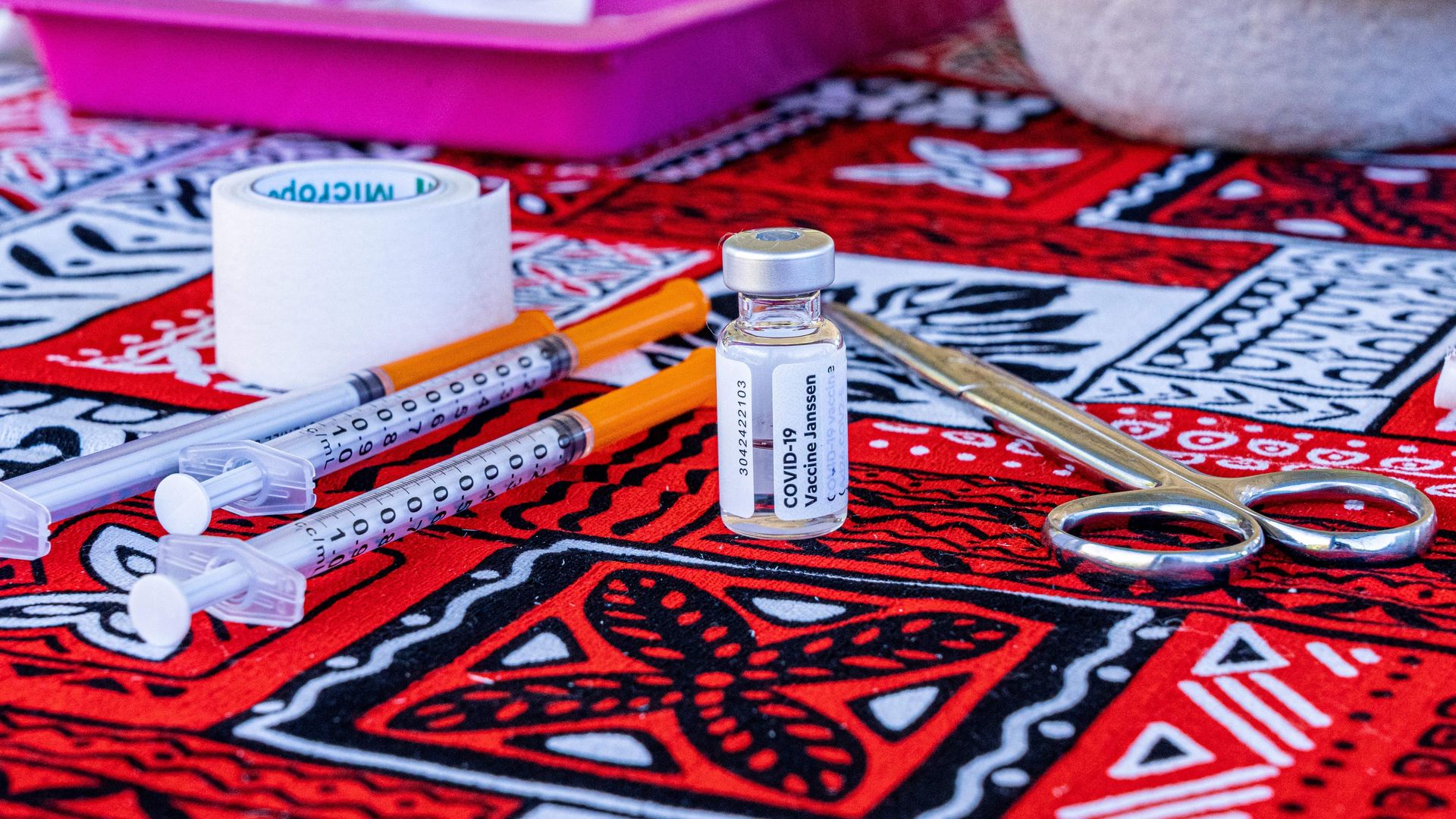Sep 21, 2021 - Health
Johnson & Johnson says booster shot increases efficacy of COVID vaccine
Add Axios as your preferred source to
see more of our stories on Google.

Syringes and a vial of the Johnson & Johnson COVID-19 vaccine in French Polynesia. Photo: Jerome Brouillet/AFP via Getty Images
